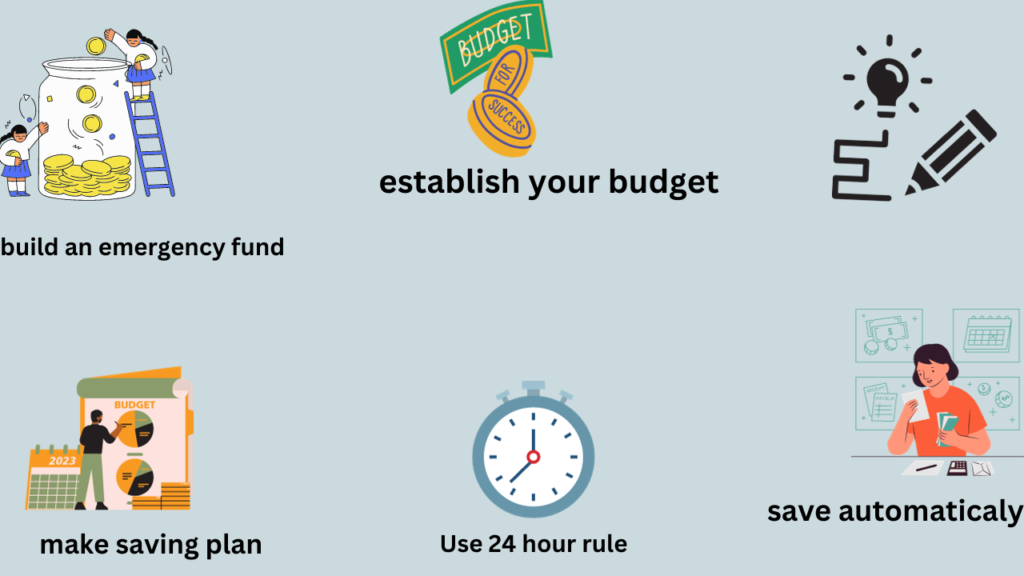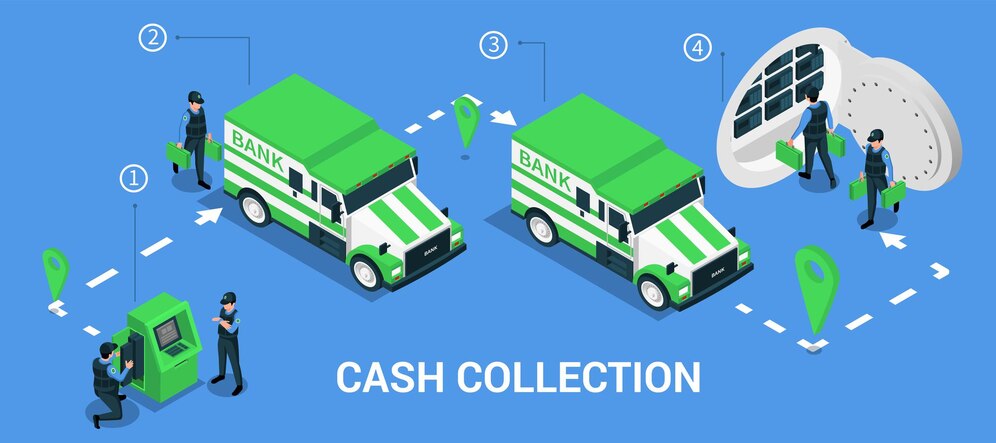Introduction
Everyone should aim to save money as a financial objective. It provides you with financial security, allows you to plan for the future, and helps you weather unexpected expenses. However, saving money isn’t always easy, and it often requires some changes in your daily habits and routines.
In this comprehensive guide, we will explore smart ways to save money every month. Whether you’re saving for a big purchase, an emergency fund, or your retirement, these strategies will help you reach your financial goals.
1. The Importance of Saving Money
Save Money Every Month
Before we dive into the practical strategies for saving money, let’s first understand why it’s so crucial. Saving money isn’t just about hoarding cash; it’s about securing your financial future. It allows you to have a safety net for emergencies, invest in your dreams, and retire comfortably. Saving money also reduces financial stress and gives you peace of mind. It’s a financial habit that empowers you to take control of your life.
2. How to Make Saving a Habit

Image source: made in Canva
Building a habit of saving requires discipline and commitment. Start by setting clear, achievable financial goals. Make sure your goals are specific, measurable, and time-bound. This will give you a roadmap to follow and motivation to save consistently.
Additionally, automate your savings. Setting up automatic transfers to your savings account ensures that a portion of your income is saved every month before you have a chance to spend it.
3. Budgeting Techniques
Creating a Monthly Budget
One of the most effective ways to save money is to create a monthly budget. A budget helps you allocate your income to various expenses and savings categories. Start by listing your sources of income, and then track your expenses.
This will give you a clear picture of where your money is going and where you can cut back. READ: Budget Like a Pro: 25 Tips for Smarter Saving and Spending
Setting Financial Goals

Image by sentavio on Freepik
- Budgeting is not just about tracking expenses; it’s also about setting financial goals. Identify your short-term and long-term financial goals, such as buying a home, paying off debt, or saving for retirement. Your budget should be a tool that guides you toward achieving these goals.
4. Reducing Monthly Expenses
Cutting Unnecessary Subscriptions
In the digital age, we often find ourselves subscribed to numerous services, from streaming platforms to gym memberships. Review your subscriptions and cancel those you rarely use. The amount of money you may save by dropping services you no longer require will astound you.
Energy-Saving Tips
Reducing your energy consumption can lead to significant savings. Make your home more energy-efficient by using LED bulbs, sealing gaps in windows and doors, and setting your thermostat to an optimal temperature. Simple changes can lower your utility bills.
Reducing Food Expenses
Food is a significant monthly expense for most households. To save money on groceries, plan your meals, create a shopping list, and stick to it. Avoid dining out frequently, and consider cooking at home. When eating out, look for deals and discounts.
5. Smart Shopping
Utilizing Coupons and Cashback Apps
Smart shopping means finding the best deals and discounts. Use coupons and cashback apps to save on your purchases. Many stores offer digital coupons that can be easily accessed through their apps or websites.
Buying Generic Brands
Generic or store-brand products are often cheaper than name-brand products and can be just as high in quality. Consider switching to generic brands for items like groceries and household products to save money.
Shopping During Sales
Timing your purchases can lead to significant savings. Wait for sales, especially during major shopping events like Black Friday and back-to-school sales. Buying items when they are discounted can save you a substantial amount of money.
Reducing Food Waste
Food waste is not only bad for your wallet but also for the environment. Reduce food waste by planning your meals, using leftovers creatively, and properly storing food to make it last longer.
6. Transportation Savings

Image by macro vector on Freepik
Using Public Transportation
If you live in an area with reliable public transportation, consider using it instead of driving. Public transit is often more cost-effective than maintaining a car, especially when you factor in gas, insurance, and maintenance costs.
Carpooling and Ride-Sharing
If public transportation isn’t an option, explore carpooling or ride-sharing services. Sharing the cost of transportation with others can significantly reduce your monthly expenses.
Maintaining Your Vehicle
If you rely on your car, ensure it’s in good working condition to minimize repair costs and fuel consumption. Regular maintenance, proper tire inflation, and careful driving can save you money in the long run.
7. Debt Management

Image by rawpixel.com on Freepik
- Paying Off High-Interest Debt
- High-interest debt, such as credit card debt, can be a significant financial burden. Prioritize paying off these debts, as they often carry the highest interest rates. Consider consolidating them into lower-interest loans if possible.
- Consolidating Loans
- Debt consolidation can simplify your financial life and potentially lower your interest rates. It involves combining multiple loans or credit card balances into one, making it easier to manage and potentially less costly in the long term.
- Negotiating with Creditors
- If you’re struggling with debt, don’t hesitate to contact your creditors and negotiate for better terms. Many creditors are willing to work with you to create more manageable repayment plans.
8. Entertainment on a Budget
Free and Low-Cost Entertainment Options
Entertainment doesn’t have to break the bank. Look for free or low-cost activities in your area, such as hiking, picnics, or visiting museums on discounted days. You’ll be surprised at how enjoyable and affordable these activities can be.
Sharing Streaming Subscriptions
Consider sharing streaming subscriptions with friends or family. Many streaming services allow multiple users on a single account, which can help you split the cost.
Using the Library
Libraries offer a treasure trove of books, movies, and even digital resources, all for free. Take advantage of your local library to save on entertainment expenses.
9. Saving on Utilities
Reducing Water Usage
Conserving water not only benefits the environment but also your wallet. Fix leaky faucets, install low-flow showerheads, and be mindful of your water usage to reduce your water bill.
Using Programmable Thermostats
A programmable thermostat can help you optimize your heating and cooling systems, saving on energy costs. Set it to lower temperatures in winter and higher temperatures in summer when you’re not home.
Solar Energy Options
If you’re a homeowner, consider investing in solar panels. While the initial cost may be high, the long-term savings on your electricity bill and potential tax incentives can make solar energy a smart financial choice.
10. Investing for the Future
Setting Up an Emergency Fund
An emergency fund is your safety net for unexpected expenses like medical bills or car repairs. Aim to save at least three to six months’ worth of living expenses in your emergency fund.
Investing in Stocks and Bonds
Once you have an emergency fund in place, consider investing in stocks and bonds to grow your wealth over time. Consult with a financial advisor to create a diversified investment portfolio that aligns with your goals and risk tolerance.
Retirement Planning
Don’t forget about retirement planning. Contribute to your employer’s retirement plan, such as a 401(k), and consider opening an Individual Retirement Account (IRA) for additional retirement savings. The earlier you start, the more you’ll benefit from compound interest.
11. Insurance Savings
Reviewing Insurance Policies
- Regularly review your insurance policies to ensure you have the coverage you need without overpaying. As your circumstances change, your insurance needs may change as well.
Bundling Insurance for Discounts
- Many insurance companies offer discounts for bundling multiple policies, such as home and auto insurance. Explore bundling options to save on your premiums.
Increasing Deductibles
- Increasing your deductibles on insurance policies can lower your monthly premiums. Just be sure you have enough savings in your emergency fund to cover the higher deductible in case of a claim.
12. Side Hustles and Additional Income
Freelancing and Gig Economy Jobs
Consider leveraging your skills in the gig economy by freelancing or working part-time. Platforms like Upwork, Fiverr, and Uber offer opportunities to earn extra income on your own terms.
Selling Unused Items
Declutter your home and make some extra cash by selling items you no longer need on online marketplaces like eBay, Craigslist, or Facebook Marketplace.
Part-Time Work
If you have the time and energy, taking on a part-time job can provide a steady stream of additional income that can be dedicated to savings.
13. The Importance of Emergency Funds
What is an emergency fund?
An emergency fund is a savings account set aside for unexpected expenses. It acts as a financial safety net, allowing you to cover unforeseen costs without going into debt.
How to Build and Use It
To build an emergency fund, start by setting a monthly savings goal. Transfer a portion of your income into this account consistently. Only dip into your emergency fund for genuine emergencies, like medical bills or unexpected home repairs.
14. Teaching Kids About Money
Teaching your children about money is an essential part of their financial education. Instill good financial habits early by involving them in budgeting, savings, and spending decisions. As they grow, you can introduce them to concepts like investing and the importance of building an emergency fund.
15. Choose the Right Banking Options
Opt for banking options that offer higher interest rates on savings accounts. Conduct thorough research on various financial institutions and select one that provides favorable interest rates and minimal fees. Maximizing your savings through higher interest rates can facilitate substantial long-term financial growth.
FAQs
Q1: How do I identify unnecessary subscriptions?
A: Look through your bank statements and identify any recurring payments for services you don’t regularly use or enjoy. If you haven’t used a subscription in the last few months, it’s a candidate for cancellation.
Q2: What’s the best way to cancel subscriptions?
A: Most subscriptions can be canceled online through the service’s website or app. If you have trouble, contact their customer support for assistance.
Q3: Are energy-saving appliances worth the initial investment?
A: Yes, energy-efficient appliances may have a higher upfront cost, but they can lead to substantial savings over time through reduced energy consumption.
Q4: What’s the ideal thermostat setting to save on energy costs?
A: Setting your thermostat a few degrees lower in winter and a few degrees higher in summer can make a significant difference. Aim for 68-72°F (20-22°C) for comfort and savings.
Q5: How can I plan meals effectively?
A: Start by creating a weekly meal plan and a corresponding shopping list. Stick to the list when you shop to avoid impulse purchases.
Q6: What’s a good strategy for reducing food waste?
A: Use leftovers creatively to create new meals, store food properly to extend its freshness, and be mindful of expiration dates.
Q7: Where can I find coupons and cashback offers?
A: Many stores offer digital coupons on their websites or apps. You can also find cashback apps like Rakuten and Ibotta that provide cash rewards for your purchases.
Q8: Are generic brands of the same quality as name brands? A: In many cases, generic brands offer comparable quality to name brands at a lower cost. It’s worth trying them to see if you notice a difference.
Q9: What are the potential savings from buying generic brands?
A: You can save anywhere from 20% to 50% or more on your grocery bill by opting for generic brands over name brands.
Q10: Are there any items where name brands are worth the extra cost?
A: Some people may prefer specific name-brand products, but for many items, generic brands are just as good.
conclusion
saving money each month is a goal that is doable but calls for dedication and wise financial management. By following the tips outlined in this guide, you can reduce your monthly expenses, increase your savings, and work towards a more secure financial future.
Remember that it’s not about depriving yourself but making wise choices that allow you to enjoy life while still achieving your financial goals. Start implementing these strategies today and watch your savings grow over time.





